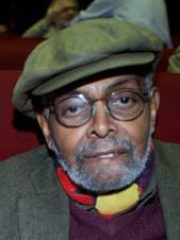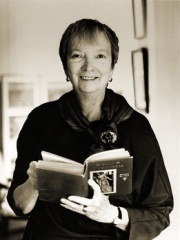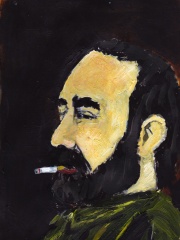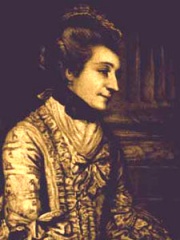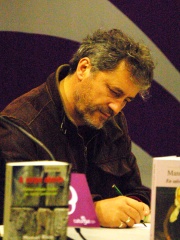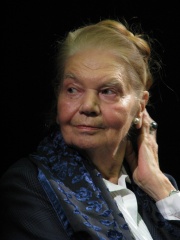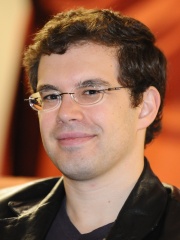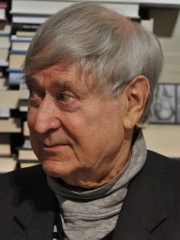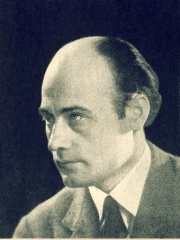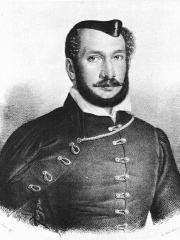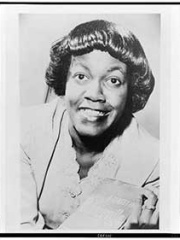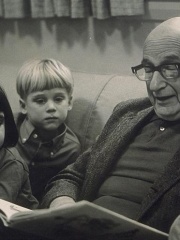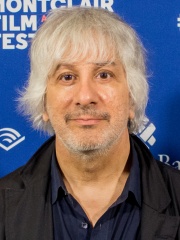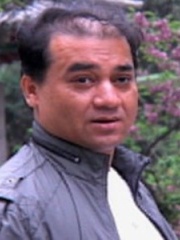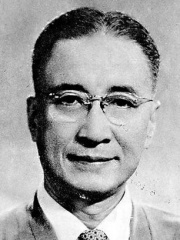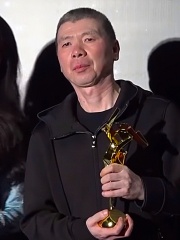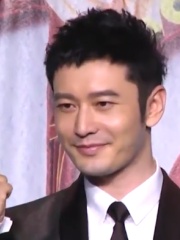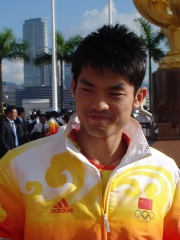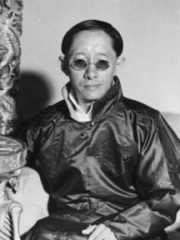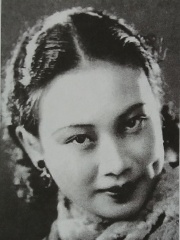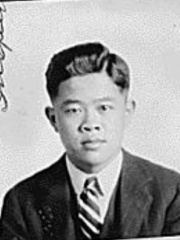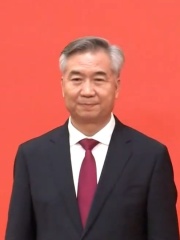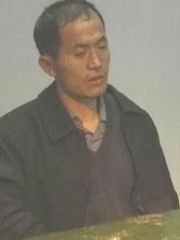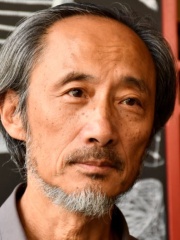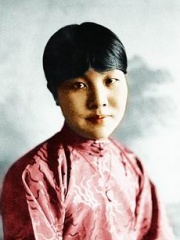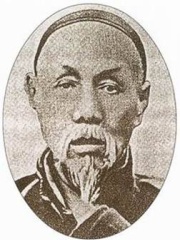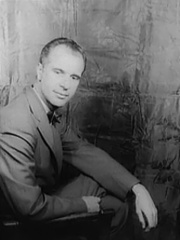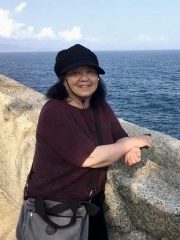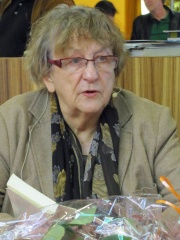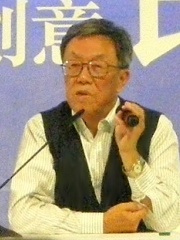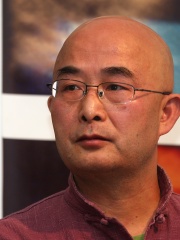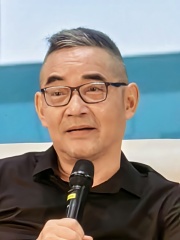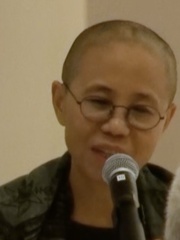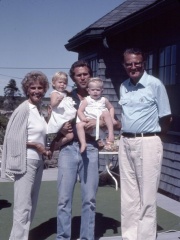Writer
Ha Jin
1956 - today
EN.WIKIPEDIA PAGE VIEWS (PV)
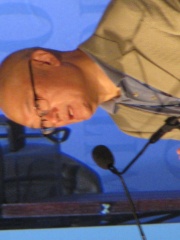
 Ha Jin
Ha Jin
His biography is available in 25 different languages on Wikipedia. Ha Jin is the 5,703rd most popular writer (down from 5,597th in 2024), the 961st most popular biography from China (down from 954th in 2019) and the 114th most popular Chinese Writer.
Memorability Metrics
Page views of Ha Jin by language
Among Writers
Among writers, Ha Jin ranks 5,703 out of 7,302. Before him are Amiri Baraka, Madeleine L'Engle, Herberto Hélder, Elizabeth Montagu, Manuel Rivas, and Julia Hartwig. After him are Christopher Paolini, Hannu Salama, Áron Tamási, Miklós Jósika, Gwendolyn Brooks, and H. A. Rey.
Most Popular Writers in Wikipedia
Go to all RankingsAmiri Baraka
1934 - 2014
HPI: 53.72
Rank: 5,697
Madeleine L'Engle
1918 - 2007
HPI: 53.72
Rank: 5,698
Herberto Hélder
1930 - 2015
HPI: 53.72
Rank: 5,699
Elizabeth Montagu
1718 - 1800
HPI: 53.72
Rank: 5,700
Manuel Rivas
1957 - Present
HPI: 53.72
Rank: 5,701
Julia Hartwig
1921 - 2017
HPI: 53.72
Rank: 5,702
Ha Jin
1956 - Present
HPI: 53.71
Rank: 5,703
Christopher Paolini
1983 - Present
HPI: 53.71
Rank: 5,704
Hannu Salama
1936 - Present
HPI: 53.71
Rank: 5,705
Áron Tamási
1897 - 1966
HPI: 53.71
Rank: 5,706
Miklós Jósika
1794 - 1865
HPI: 53.71
Rank: 5,707
Gwendolyn Brooks
1917 - 2000
HPI: 53.70
Rank: 5,708
H. A. Rey
1898 - 1977
HPI: 53.69
Rank: 5,709
Contemporaries
Among people born in 1956, Ha Jin ranks 427. Before him are Bernie Shaw, Tony Kushner, Salvatore Cordileone, Meg Whitman, Dianne Reeves, and Carlos Roberto Gallo. After him are Lee Ranaldo, Chloe Webb, Rashid Nurgaliyev, Zehava Gal-On, Ray Wilkins, and Henriette Reker.
Others Born in 1956
Go to all RankingsBernie Shaw
SINGER
1956 - Present
HPI: 53.89
Rank: 421
Tony Kushner
WRITER
1956 - Present
HPI: 53.88
Rank: 422
Salvatore Cordileone
RELIGIOUS FIGURE
1956 - Present
HPI: 53.88
Rank: 423
Meg Whitman
BUSINESSPERSON
1956 - Present
HPI: 53.80
Rank: 424
Dianne Reeves
SINGER
1956 - Present
HPI: 53.79
Rank: 425
Carlos Roberto Gallo
SOCCER PLAYER
1956 - Present
HPI: 53.76
Rank: 426
Ha Jin
WRITER
1956 - Present
HPI: 53.71
Rank: 427
Lee Ranaldo
MUSICIAN
1956 - Present
HPI: 53.70
Rank: 428
Chloe Webb
ACTOR
1956 - Present
HPI: 53.70
Rank: 429
Rashid Nurgaliyev
POLITICIAN
1956 - Present
HPI: 53.69
Rank: 430
Zehava Gal-On
POLITICIAN
1956 - Present
HPI: 53.66
Rank: 431
Ray Wilkins
SOCCER PLAYER
1956 - 2018
HPI: 53.66
Rank: 432
Henriette Reker
POLITICIAN
1956 - Present
HPI: 53.64
Rank: 433
In China
Among people born in China, Ha Jin ranks 961 out of NaN. Before him are Ilham Tohti (1969), Cai Chusheng (1906), Feng Xiaogang (1958), Huang Xiaoming (1977), Lin Dan (1983), and Tashi Namgyal (1893). After him are Hu Die (1908), Cui Jian (1961), James Wong Howe (1899), Li Xi (1956), Yang Xinhai (1968), and Ma Jian (1953).
Others born in China
Go to all RankingsIlham Tohti
ECONOMIST
1969 - Present
HPI: 53.98
Rank: 955
Cai Chusheng
FILM DIRECTOR
1906 - 1968
HPI: 53.94
Rank: 956
Feng Xiaogang
FILM DIRECTOR
1958 - Present
HPI: 53.94
Rank: 957
Huang Xiaoming
ACTOR
1977 - Present
HPI: 53.86
Rank: 958
Lin Dan
BADMINTON PLAYER
1983 - Present
HPI: 53.82
Rank: 959
Tashi Namgyal
POLITICIAN
1893 - 1963
HPI: 53.72
Rank: 960
Ha Jin
WRITER
1956 - Present
HPI: 53.71
Rank: 961
Hu Die
ACTOR
1908 - 1989
HPI: 53.62
Rank: 962
Cui Jian
MUSICIAN
1961 - Present
HPI: 53.45
Rank: 963
James Wong Howe
FILM DIRECTOR
1899 - 1976
HPI: 53.38
Rank: 964
Li Xi
POLITICIAN
1956 - Present
HPI: 53.36
Rank: 965
Yang Xinhai
EXTREMIST
1968 - 2004
HPI: 53.34
Rank: 966
Ma Jian
WRITER
1953 - Present
HPI: 53.32
Rank: 967
Among Writers In China
Among writers born in China, Ha Jin ranks 114. Before him are Bing Xin (1900), Lin Shu (1852), John Hersey (1914), Fang Fang (1955), Ingrid Noll (1935), and Wang Meng (1934). After him are Ma Jian (1953), Liao Yiwu (1958), Jiang Rong (1946), Su Tong (1963), Liu Xia (1961), and Ruth Graham (1920).
Bing Xin
1900 - 1999
HPI: 55.85
Rank: 108
Lin Shu
1852 - 1924
HPI: 55.58
Rank: 109
John Hersey
1914 - 1993
HPI: 54.98
Rank: 110
Fang Fang
1955 - Present
HPI: 54.69
Rank: 111
Ingrid Noll
1935 - Present
HPI: 54.54
Rank: 112
Wang Meng
1934 - Present
HPI: 54.27
Rank: 113
Ha Jin
1956 - Present
HPI: 53.71
Rank: 114
Ma Jian
1953 - Present
HPI: 53.32
Rank: 115
Liao Yiwu
1958 - Present
HPI: 52.70
Rank: 116
Jiang Rong
1946 - Present
HPI: 52.62
Rank: 117
Su Tong
1963 - Present
HPI: 52.22
Rank: 118
Liu Xia
1961 - Present
HPI: 51.73
Rank: 119
Ruth Graham
1920 - 2007
HPI: 50.31
Rank: 120
